1940 Ford Deluxe Woody Wagon
By: AUDRAIN Automobile Museum

1940 Ford Deluxe Woody Wagon
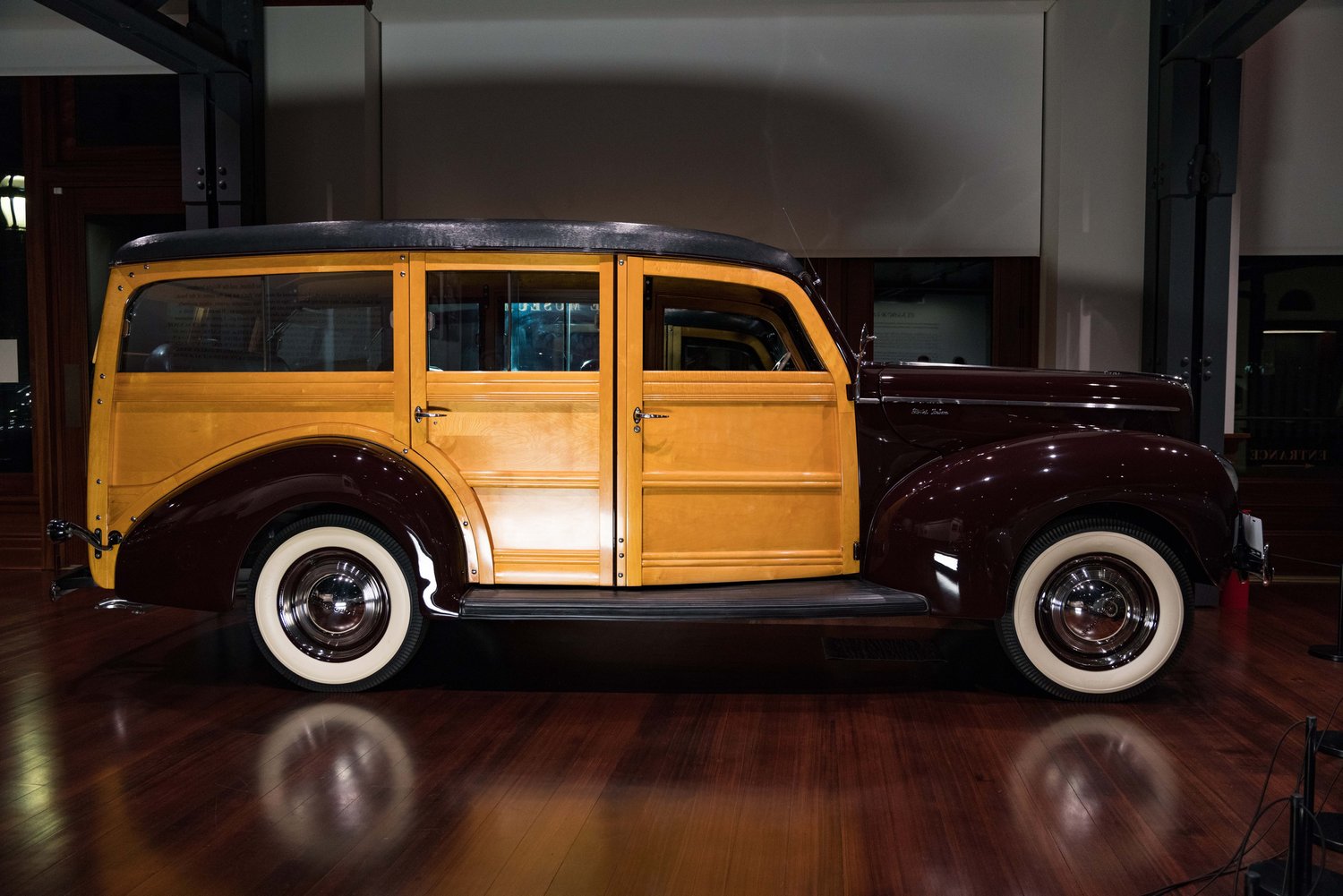
-
The iconic car that started the woody fashion trend
-
All components of the vehicle sourced and constructed by Ford, from forest to factory.
-
Represents transition from utilitarian wood-bodied cars to a design aesthetic
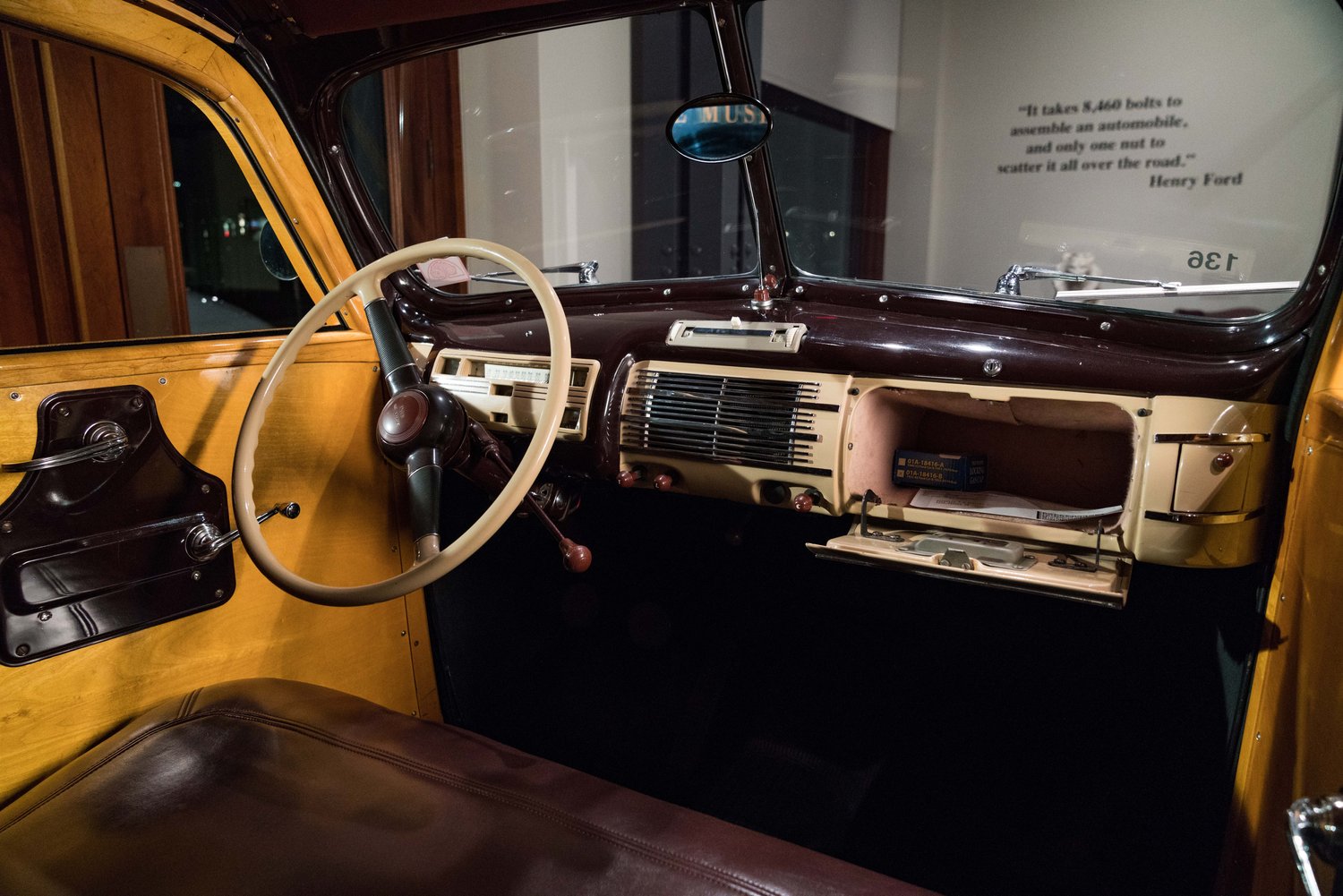
The 1940 Ford is often considered one of the true icons of American design, especially in Woody form. Ford built a strong reputation for producing Woody Wagons of extremely high quality. The 1940 Ford Woody Wagon represents the cultural shift of woodies used as work vehicles to fashion statements for wealthier customers.
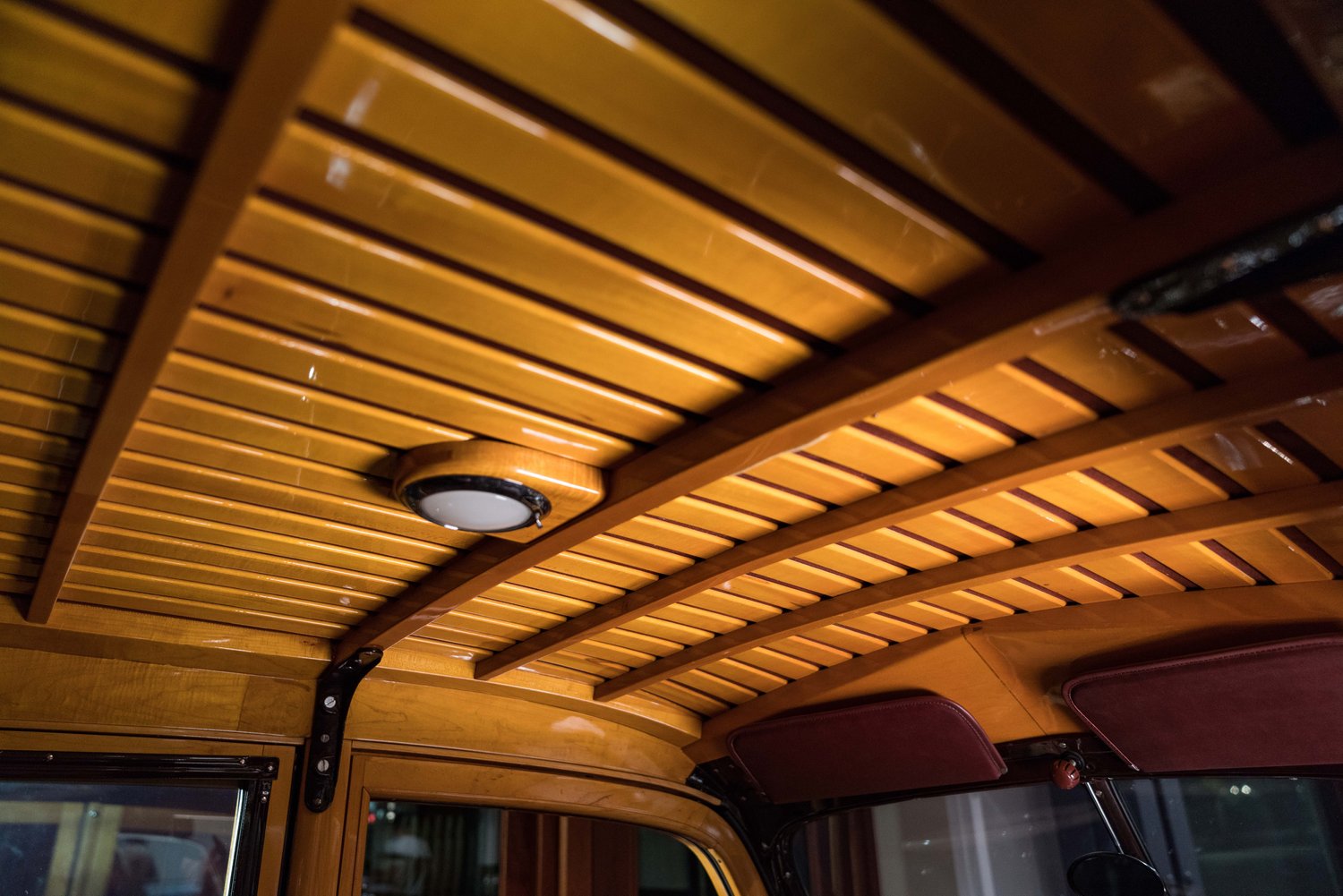
In 1920, Henry Ford purchased more than 400,000 acres of forest reserves in northern Michigan. Ford was then able to control the entire operation of building wooden aspects of his cars, first for frames and later for wooden bodies. Ford released its own version of the woody in 1929, marketed as all-purpose utilitarian vehicle with a low initial cost. Wood-bodied cars were less expensive to build than steel-bodied cars because the wood was easy to work with and it was cheap. Ford hired experienced craftsmen, such as fine cabinetry makers and wooden boat builders, to ensure a highly skilled labor force, ensuring again that Ford wood bodies would be second to none.
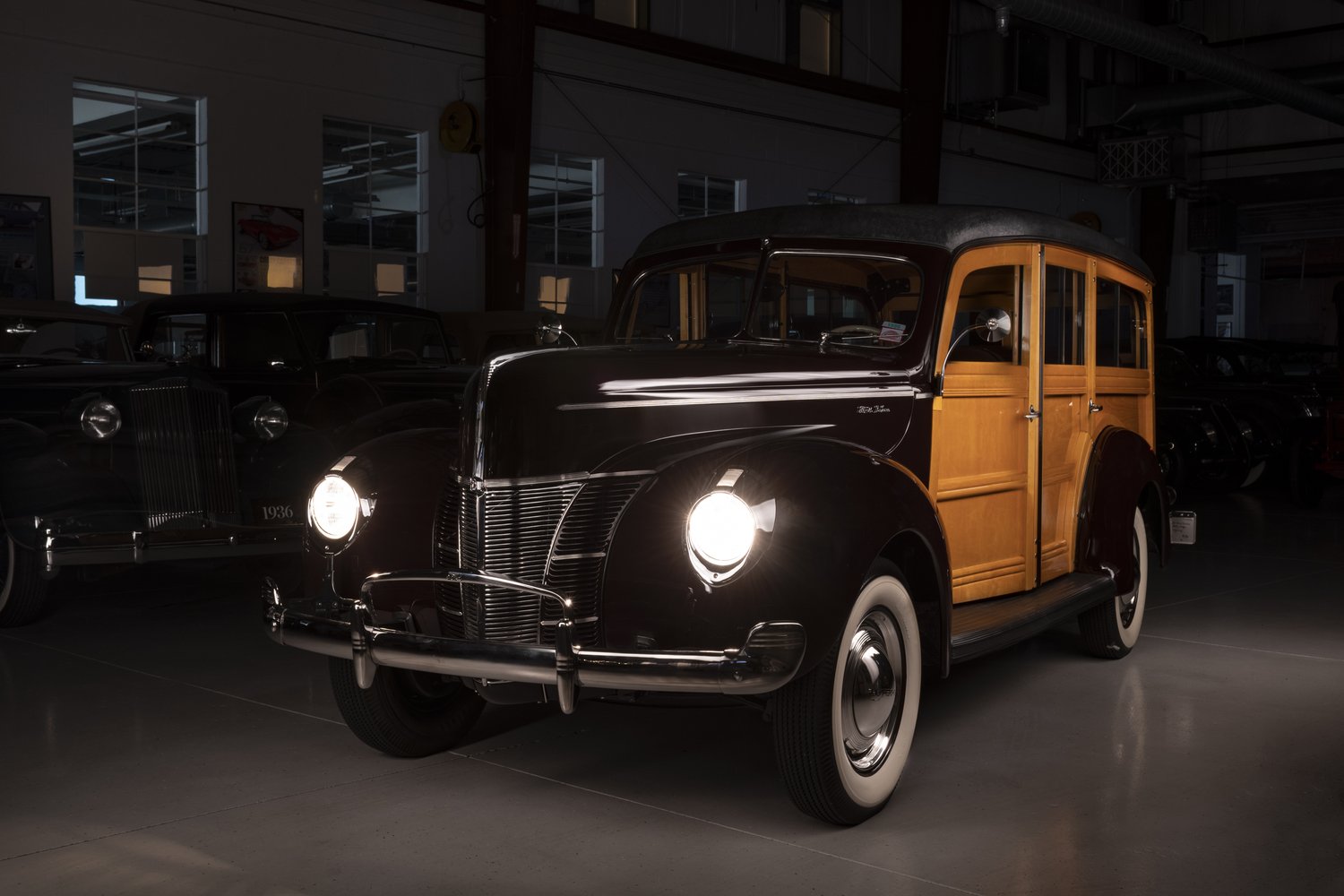
By the 1940s, wood station wagons had become a premium, semi-hand-built, low production and high-priced product. This was due to the inconvenience of cleaning and maintaining the wood, the fabric roof requiring periodic coating and replacement, and the method of fabrication being both labor-intensive and costly. With the skyrocketing prices, wood paneling became an option for high-end models. Furthermore, the 40s saw the transition from wood to steel-bodied vehicles. All the new wagon designs introduced in 1948 and 1949 had steel roofs and steel inner structures. Wood continued to be used in varying degrees for decorative effects on the exterior and on the interior as well.
Specifications:
Engine: 3.6 Liter Flathead V8
Horsepower: 85 @ 3900 RPM
Transmission: Three-Speed Manual
Weight: 3262 lbs.
No politics, no religion, no instagrams, and commentary must be civil. The ToS and the CoC will be enforced, and anything that the administrator deems to be offensive will be deleted. YouTubes, videos and images that the administrator is unable to open must be described and explained or they will be deleted.
Tags
Who is online
70 visitors

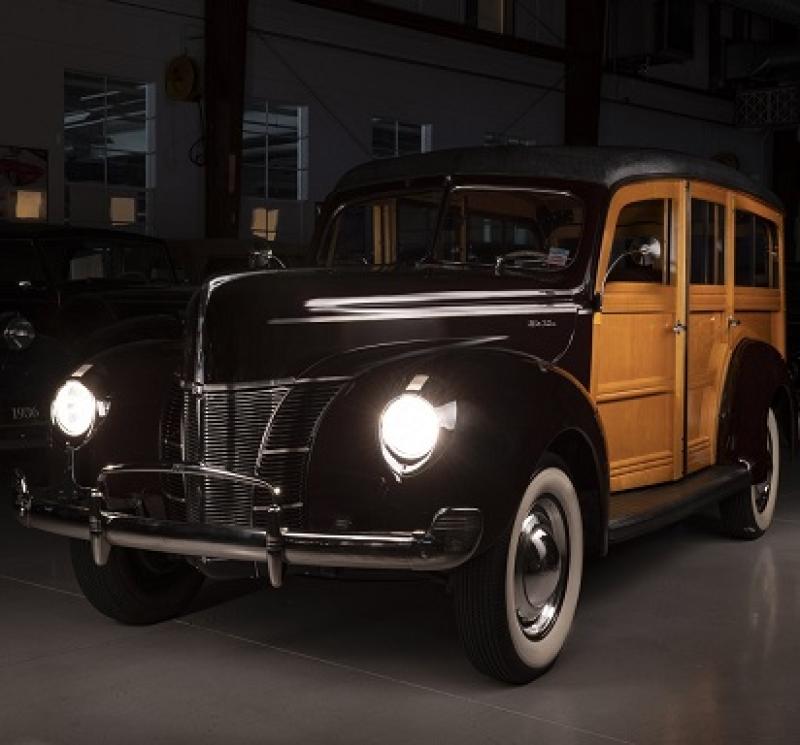
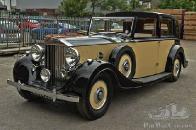
REAL wood woodies were always considered kind of special. However, I have no admiration for FAKE woodies, the vinyl fake wood or just paint job resembling wood on the later vehicles wrongly called "Woodies".
I remember seeing Woodies as a kid. The huge weight of all that wood made them impractical.
Upkeep expenses on a driveable classic example is similar that of a classic Chris Craft boat...
Those were beautiful cars. Remember when US automakers did that?
I do.
I have a friend who restored a woody that looks exactly like the one in the pics. It's even painted the same color. It has the original flathead V8 and hubcaps. He spent about 5 years restoring it and has now been driving it (rarely) for about 10 years. He even built a custom wooden longboard for the roof.
In pristine condition they are magnificent.
Most still around by the 1960s were not...
I remember a couple in town were homely.
It's been many decades since I've seen one, and I mean a real one, not a fake.
Got to admire a person who does that.